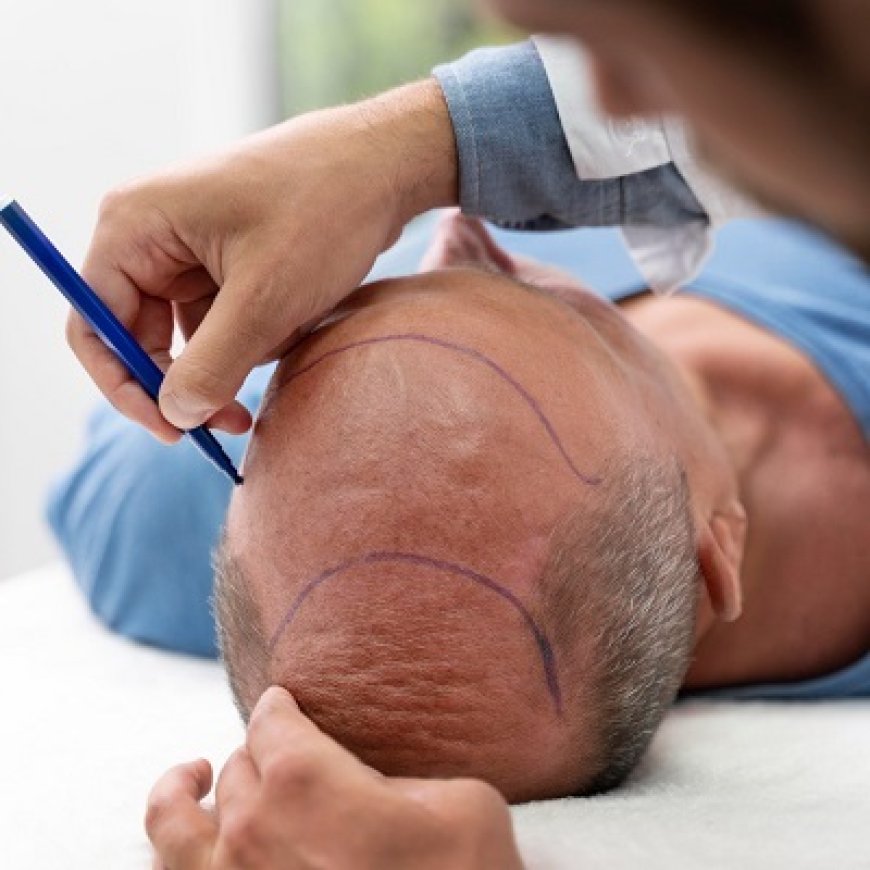Hair Transplant Surgery – Will I Need Time Off Work?

Undergoing a hair transplant is a significant decision that many people consider as a solution to hair loss. If you're contemplating this procedure, you may have questions about the recovery process, particularly how much time you'll need to take off work. Understanding the nature of the surgery, recovery expectations, and post-operative care can help you prepare for your time away from the workplace.
What to Expect During Hair Transplant Surgery
Hair transplant surgery typically involves the extraction of hair follicles from a donor site, usually located at the back of the scalp, and their implantation into the balding or thinning areas. The two most common techniques used are Follicular Unit Transplantation (FUT) and Follicular Unit Extraction (FUE). While FUT involves removing a strip of skin with hair, FUE consists of extracting individual follicles directly.
The surgery usually lasts between four to eight hours, depending on the number of grafts being implanted. Although it's an outpatient procedure, it’s essential to plan for a period of rest afterward. Most clinics, including those offering hair transplant in Islamabad, provide detailed pre-operative and post-operative care instructions to ensure a smooth recovery.
Recovery Timeline After Hair Transplant Surgery
After the surgery, patients can expect some swelling, redness, and mild discomfort in the treated area. Most people can return to their normal activities within a few days, but here are some key points to consider regarding time off work:
-
Immediate Recovery (1-3 Days): In the first few days following the procedure, it's advisable to take time off work, especially if your job involves physical labor or exposure to dust and sunlight. The initial recovery phase is critical, as your scalp needs time to heal. Most surgeons recommend taking at least two to three days off to allow for any swelling to subside and to monitor the healing process.
-
Returning to Work (4-7 Days): After the first few days, many patients feel comfortable returning to work, especially if they can maintain a low-stress environment. If your job allows you to work from home, this can be an excellent option as it minimizes exposure to potential irritants and lets you take care of your healing process more effectively.
-
Physical Activity (1-2 Weeks): It's generally recommended to avoid strenuous physical activities for at least a week to ten days post-surgery. Activities that involve heavy lifting, intense exercise, or any form of activity that could result in sweating should be postponed. If your job requires physical exertion, you may need to take additional time off.
-
Full Recovery (2-3 Weeks): By the second or third week, most of the visible signs of surgery, such as redness or swelling, should diminish significantly. At this point, patients often feel much more comfortable in their appearance and can resume more normal activities, including light exercise.
Post-Operative Care and Considerations
The success of your hair transplant largely depends on how well you adhere to post-operative care instructions provided by your surgeon. Proper care not only enhances healing but also optimizes the survival rate of transplanted hair follicles. Here are some critical post-operative care tips:
-
Avoid Touching the Scalp: It's crucial to avoid touching, scratching, or picking at the grafts during the initial healing phase. This helps prevent infection and allows the follicles to settle into their new location.
-
Follow Medication Instructions: Surgeons often prescribe medications to manage pain and minimize inflammation. Adhering to this medication regimen can ease discomfort and promote faster healing.
-
Sleep Position: For the first few nights, sleep with your head elevated to reduce swelling. This is an important aspect of post-operative care that many patients overlook.
-
Stay Hydrated and Eat Well: Proper nutrition and hydration contribute significantly to recovery. Incorporate foods rich in vitamins and minerals, particularly those that support skin and hair health.
-
Avoid Direct Sunlight: For at least a month post-surgery, protect your scalp from direct sunlight. Wear a hat or use sunscreen as advised by your surgeon.
Workplace Communication
When planning to take time off work for your hair transplant, it’s essential to communicate with your employer about your upcoming absence. Depending on your workplace culture, you may choose to be open about the procedure or opt for a more general explanation regarding your need for medical leave. Many employers understand the importance of personal well-being and will likely support your decision to prioritize your health.
If you’re self-employed or work in a flexible environment, planning your workload around your recovery can help ease the transition back to work. This approach allows you to gradually increase your activity level as you heal, reducing stress and potential setbacks in recovery.
Conclusion
Taking time off work after a hair transplant is a vital step in ensuring a successful recovery. By understanding the recovery timeline and following post-operative care instructions, you can return to your daily routine with confidence. If you’re considering a hair transplant in Islamabad, make sure to consult with a reputable clinic that provides personalized care, such as the Royal Cosmetic Surgery. They will guide you through the process and help you determine the best approach for your individual situation.
What's Your Reaction?
















